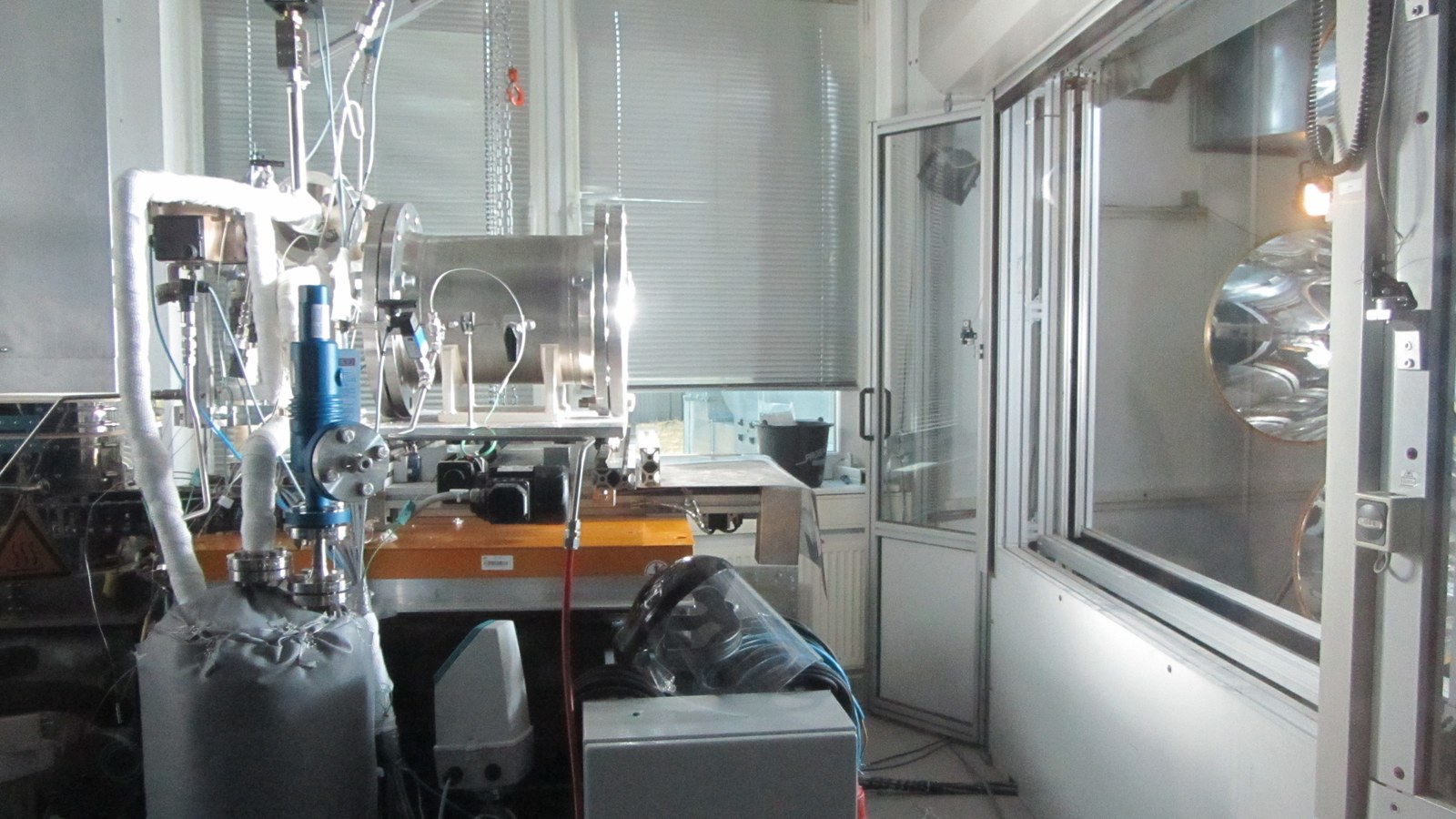Institute of Combustion Technology
The main topics of research and development activities in the Institute of Combustion Technology (VT) are technical combustion processes focused on combustion in gas turbines.

Duration: 1.1.2018 – 31.12.2021
The growing share of renewable energies in Germany not only requires additional large capacities in the area of electricity and supply networks, but also innovative solutions for energy storage and transport. Synfuels are expected to play a key role as energy carrier for the transport sector and as energy buffer for the integration of large amounts of renewable energy into the grid.
The Future Fuels project (sub-project 2) investigates amongst others how synthetic fuels can be produced with concentrated solar energy coupled to a high-temperature electrolyser. Building on the results of the DLR strategic project Future Fuels, in which solar hydrogen was produced, the components HT electrolyser, thermal or thermochemical storage and solar receiver have to be further developed, tested and evaluated as an integrated process in the large-scale facilities of DLR. In continuation of the work in the DLR strategy project Future Fuels, in which the possibility of integrating solar heat for steam generation into an HT electrolyser was investigated in order to produce hydrogen with high efficiency, this follow-up project will provide the basis for the coupling of solar heat and the co-electrolysis process of water vapor and CO2. The aim is to produce synthesis gas that can be further processed into synthetic fuels in a subsequent process, for example through Fischer-Tropsch synthesis.
With regard to solar-thermochemical fuel production, the further development of redox materials has a decisive influence on the efficiency of solar-thermochemical fuel production. In order to be able to do this faster and more purposefully, models have to be developed making possible to identify potential candidates by means of simulations. These models will be validated by synthesis and evaluation of the most promising materials. Based on the basic model, its possible use will be broadened and it will be linked to available substance databases.
Project | Future Fuels 2 |
|---|---|
Duration | 1.1.2018 – 31.12.2021 |
Project participants | 10 DLR institutes and departments:
|
Funding | DLR basic funding |
